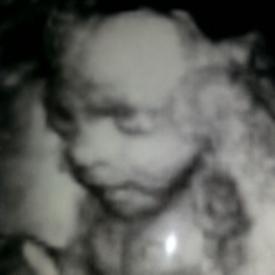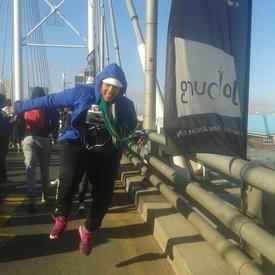Fixing a screwed metabolism?

NitaCB
Posts: 532 Member
I have finally come to the conclusion that I am trying to fix a screwed up metabolism. If you don't think it can happen, trust me it can. I have spent much of my adult life constantly trying to lose weight to some degree or another. When I finally got down to a weight I was really happy at I did so by eating a very restricted amount (at a guess probably around 1000 cals a day or so). Slowly over the next 6 years I gained some of it back, because I couldn't sustain eating in such a restricted manner.
I've been on MFP for a year now, and instead of losing anything I've gained! Yes I take into account a very stressful year, likely underestimations of food and overestimations of exercise, but there's no way from tracking what I've eaten so closely that I should gain on a deficit.
I've tried eating back some or all of my exercise calories, but it feels like too much food. I guess if I'm honest, I was used to always living in the mentality that if you eat less you'll lose weight. I'm a runner, and I often have burns between 400-700, so it's a lot to make up for.
I've been told that I may experience a small gain when I raise my calories to be up where they should be. But I just don't feel like I can face any more of a gain than I have already. I'm the heaviest I've been in years. Don't worry I'm not scale obsessed, quite the opposite, scale-terrified. Because I get depressed every time I get on it.
Can anybody give me some advice on how long I may have to stick with persisting at higher calories (ie. NETTING 1200 cals or more) until I start to see the scale start to move in the other direction?
I've been on MFP for a year now, and instead of losing anything I've gained! Yes I take into account a very stressful year, likely underestimations of food and overestimations of exercise, but there's no way from tracking what I've eaten so closely that I should gain on a deficit.
I've tried eating back some or all of my exercise calories, but it feels like too much food. I guess if I'm honest, I was used to always living in the mentality that if you eat less you'll lose weight. I'm a runner, and I often have burns between 400-700, so it's a lot to make up for.
I've been told that I may experience a small gain when I raise my calories to be up where they should be. But I just don't feel like I can face any more of a gain than I have already. I'm the heaviest I've been in years. Don't worry I'm not scale obsessed, quite the opposite, scale-terrified. Because I get depressed every time I get on it.
Can anybody give me some advice on how long I may have to stick with persisting at higher calories (ie. NETTING 1200 cals or more) until I start to see the scale start to move in the other direction?
0
Replies
-
My metabolism is crap, and I am nowhere near a runner so I have a difficult time relating to your position. I can tell you from my position as a nutritional counselor that spicy foods DO increase your metabolism. Make sure you are intaking plenty of protien and fiber as protien and fiber help not only with muscle growth and retention but maintaining your metabolic rate. Keep with a low-fat, high-fiber, high-protien, low-sodium diet with the caloric intake recommended by MFP and you will be fine. Remember that muscle has a higher weight-value than fat so even though you may weigh more, what are your measurements looking like? I would say ditch the scale and pull out the measurement tape. You may find yourself happier for it!0
-
I've never really improved my metabolism but what they said in hospital is that you should eat 6 small meals a day and they encourage you to snack regularly. I don't think it's the total number of calories that matters, it's what and when you eat them. What you need to do is try to feed your body as steadily as possible and your body will say to you "oh hey, thanks man, there is no shortage of food and we can get this motor running at maximum capacity again"
That is ofcoarse if a body could talk.
Also I envy that you can run, running boosts your metabolism too. You must be so healthy.0 -
http://www.myfitnesspal.com/topics/show/3047-700-calories-a-day-and-not-losing
Mentions method and time span, and your concerned mental state over what the scale says, and why it's best in the long run.0 -
I'm doing the best I can with my diet. I eat heaps of veges and fruit, so I get plenty of fibre. I eat 5-6 times a day and I try and keep my ratios to about 45-50% carbs, 30-35 protein and 20 fat.0
-
Why don't you try slimming world. When I first did slimming world I lost 7 pounds compared with a loss in my first week at weight watchers of 3 pounds. It re.educates you into not thinking that to be dieting you should be hungry all the time. It might get you eating more!0
-
I've learned that the key to a slowed metabolism is eating smaller meals more often. I average about five meals a day. I focus on lean proteins mainly from Soy, Chicken, and Fish. Keep the fire burning they say. You can check out my log so far if you if you like. I don't know if this helps you at all, but when you eat less, your body will slow down and begin to store food as fat.0
-
Perhaps you're just worrying too much

It's always best to listen to what your body wants rather than giving it what numbers sugest it requires.
I'm a hypocrite but goodness I wish I could do that.0 -
http://www.myfitnesspal.com/topics/show/3047-700-calories-a-day-and-not-losing
Mentions method and time span, and your concerned mental state over what the scale says, and why it's best in the long run.
Ok, I read this, and I can fully relate to it. Even though I'm totally not coming at it from being under 1000 cals a day, but more from being very active.
I've tried a range of different calorie levels, but always in a deficit. Do you think that in some cases you could still see small gains until you actually reach a point at which the body finally says 'It's ok, I'm safe now. I can relax and start to let go.'. In other words, that it could still hold until say a 1300-1400 NET or something? Just a thought...0 -
Instead of trying to eat back your exercise calories, which could vary, you could up your maintenance and therefore goal calories to take into account your normal exercise routine for a week.
So each day would be higher than now, but the avg would be the same, and you would not eat back normal exercise calories.
You might also try several online calculators that give estimates of BMR and maintenance calories based on more figures than just age, weight, gender.
Perhaps you got a decent body fat measurement somewhere, and a calculation uses that to get more accurate.
It's along the same lines as how MFP calculates your BMR based on formula, and then you enter your normal activity level and weight loss goal.
You could be selecting your activity level wrong, or be on one side of the scale from it's avg.
And remember, in that study, she was sedentary and at 700. You are in the same boat if you are at 1500 and do 800 calories of exercise daily, and only eat the 1500.
Or in your case, 1200 and 600 exercise, and sometimes eat the calories back. Also remember, how accurate are those exercise calories? Perhaps underestimated?
What is giving you the value, and what personal stats does it use for computation?0 -
Instead of trying to eat back your exercise calories, which could vary, you could up your maintenance and therefore goal calories to take into account your normal exercise routine for a week.
So each day would be higher than now, but the avg would be the same, and you would not eat back normal exercise calories.
You might also try several online calculators that give estimates of BMR and maintenance calories based on more figures than just age, weight, gender.
Perhaps you got a decent body fat measurement somewhere, and a calculation uses that to get more accurate.
It's along the same lines as how MFP calculates your BMR based on formula, and then you enter your normal activity level and weight loss goal.
You could be selecting your activity level wrong, or be on one side of the scale from it's avg.
And remember, in that study, she was sedentary and at 700. You are in the same boat if you are at 1500 and do 800 calories of exercise daily, and only eat the 1500.
Or in your case, 1200 and 600 exercise, and sometimes eat the calories back. Also remember, how accurate are those exercise calories? Perhaps underestimated?
What is giving you the value, and what personal stats does it use for computation?
I've tried the Katch-McCardle equation. I'm 135 lbs and about 25% body fat. I put in for 'hard exercise 6-7 days a wk' because I run at least 40 mins 5-6 x a week plus 2 Pump classes. Aside from the exercise though, at the moment I'm doing a desk job.
It comes up with a BMR of 1362, TDEE of 2349, and for weight loss 1850.
Do you think I should just shoot for 1850? I've ordered a Garmin watch with an HRM, which should be here in the next few days, so I should see a more accurate guide of what I burn.0 -
I hope things get back to normal for you. I have abused my body so much over the years that I will be surprised if I can reach my goal...I will try the suggestions posted0
-
I think I may have told you this in our group, but I can totally relate. I imagine, even before I was tracking calories here, I was undereating for several months. Which is why I think I had months of no loss, despite eating at a deficit and eating exercise calories.
What helped me lose weight was not eating a deficit for a while. For me it only took a couple of weeks of doing this, but since it sounds like you may have been undereating for even longer, it may take longer. That’s my suggestion – give your body a break from a calorie deficit for a while, keeping in mind that any gains you might experience are temporary. I would do it for at least a month without looking at the scale. I would even stop with the vigorous exercise for a couple of weeks.
And please remember, although I know it’s frustrating, the number on that scale says nothing about your value or worth as a person or your fitness abilities. It should not dictate how awesome or bad you feel about yourself. :flowerforyou:0 -
There is only one true way of improving your metabolism and that is increasing lean muscle mass. Eating spicy foods helps in the short term of burning more calories but doesn't consistently help you maintain a metabolic rate. So how do you increase your LBM, you have to lift weights and lift heavy. This also means eating at your maintenance calories or even a caloric surplus to allow your bodies muscle to grow. This also means you will gain weight. The problem that comes into play is as a runner, you burn a crap load of calories and it's hard to make up for that loss. Also,during long runs, your bodies' fat store can be depleted and your body will turn to your lean muscle mass to feed your body; this is why some runners smell ammonia after a long run, its the conversion of amino acids into energy.0
-
bump
Nita, as you know we are in the same boat!!!! Interested to see the responses here!0 -
I've tried the Katch-McCardle equation. I'm 135 lbs and about 25% body fat. I put in for 'hard exercise 6-7 days a wk' because I run at least 40 mins 5-6 x a week plus 2 Pump classes. Aside from the exercise though, at the moment I'm doing a desk job.
It comes up with a BMR of 1362, TDEE of 2349, and for weight loss 1850.
Do you think I should just shoot for 1850? I've ordered a Garmin watch with an HRM, which should be here in the next few days, so I should see a more accurate guide of what I burn.
As others have said, not eating a deficit for awhile could very well help, because it could be you are more of a deficit than you know. Or at least it would be a greater deficit if the BMR wasn't messed up and artificially low - if that is the cause.
So eating the recommended 1850 may not be bad idea. Feed the workout too.
So if eating a snack before the run, good balance of carbs/protein so the insulin spike doesn't turn off fat being released for energy, right when you want it being used.
Then post workout higher carb/protein to build back the glucose reserves.
Then normal meals. You can probably hit the 1850. And you probably will gain some weight, maybe even muscle mass as you feed those muscles more.
And depending on the Garmin gotten, the calorie burn may or may not be based on HR. If you don't wear the HRM but the unit tracks your pace, and it still gives you a calorie burn - it doesn't. But you can do what I do and take the avg HR to a site that uses the Polar formula and the needed values to get about as accurate as you are going to get.0 -
Also,during long runs, your bodies' fat store can be depleted and your body will turn to your lean muscle mass to feed your body; this is why some runners smell ammonia after a long run, its the conversion of amino acids into energy.
Hardly. Here are some rough figures.
1 pound of fat, as we all know, has 3500 calories of energy in it.
Let's take into account running at a pace that has you using 33% fat energy, and 67% glucose energy, to supply your run. That would be the aerobic zone, below race pace, for 1 hr.
Your HR at this pace gives you a best estimate calorie burn of say 800 cal/hr - so 264 cal of fat used, and 536 cal of glucose.
You have hardly touched your fat stores.
Now, glucose stores are a different matter.
Usually about 2000 calories depending on training. Not all of that can be tapped for energy use because the brain needs some, and other functions.
So those 2000 calories at that pace would get you about 3:45 hr of running.
For the fat, 990 calories - still barely touching the fat stores of even the leanest person, who probably has a few pounds of fat to store.
You are probably thinking of the "wall" effect, where you run out of glucose stores because your pace was too fast for your HR, and fat can't burn without glucose, no matter how slow you go.
Once glucose is gone, now muscle will get broken down to provide the energy needed.
And of course you can accelerate this whole process by running at even a faster pace and burning through the carbs faster, hitting the wall faster.
Or you can be like the pro-marathoners, who train their bodies to burn fat at a higher level of exertion, and don't hit the wall until the very end.0 -
I used caffeine, red pepper, and cinnamon.0
-
Have you tried a low carb plan, just for experiments sake? Maybe you have an insulin issue going on, or prediabetes, making simple carbs hard to tolerate?0
-
you may just need to consult your dr. i know i plan to do that because as a woman in my late 30's that quit smoking 3 years ago if i look at food i can gain, but if i try to take it off it can take months. I have also yo-yo ed for years so i've totally screwed myself up but i am giving myself a certain amount of time then it's off to the doctor for a full checkup for me. Just a thought.0
-
I seeeeriously doubt that I have prediabetes or an insulin issue. I'm an otherwise healthy girl!
And I'm not trying to 'speed up' my metabolism per se, I'm actually just trying to get it to work properly, as it should do. Especially for someone as active as I am. Because the theory goes, and it should be true, that everyone is capable of losing weight (body fat whatever) you just have to find the right balance. I seem to be running around (ha ha literally) like a headless chicken, but not getting any of the results that everyone else on here seems to get, and what I think I should.
I do eat less carbs than I used to before, but I do think that 45-50% is necessary for my needs as a runner. I generally run between 50-75 km a wk, so you need sufficient carbs to fuel that.
I'm going to be starting to train as a PT, and I don't want to be giving clients advice, saying 'do this' and 'do that' when actually none of it has worked for me!0 -
if 1850 is what you are working out, then thats what i'd be aiming for.
Its not alot of food.
Jeez on a workout day i might eat that in 1.5 hours...
Easy when you add healthy fats.
1200 is not enough. especially for someone like yourself.
If you are running 5 x a week and doing two classes on top of that, i've no doubt in my mind that you could 2000/day everyday and lose weight. 0
0 -
I highly recommend Tom Venuto's "Burn the Fat, Feed the Muscle"
Great book!!!
I'll revisit this thread later. Heading off to do some weights0 -
ps. I am 5 2 weigh 62 kg (136 lbs) and I'm losing fat eating in the range of 1800 - 2300. In the past month the scale hasn't moved yet I have lost centimetres and body fat %! Half the time I've eaten below 2000 and the other half above the 2000.
I do intense excerise including 3 sprint/hiit workouts a week, a timed quick 15 min run, I also cycle and do weights twice a week. On top of that I commute to and from work 15 mins each way and walk for 30 mins at lunch time to get my incidental exercise in.
I want to lose another 3 - 4 kgs but if I decided to go into maintenance mode tomorrow I'd easily be able to maintain my weight eating a 2000 - 2600 calorie range.0 -
Sorry to hijack, but:I can tell you from my position as a nutritional counselor that spicy foods DO increase your metabolism.
Really?
How?0 -
Are we talking about repairing the metabolism or talking weight loss? Its different approaches.0
-
bump0
-
I'm talking weight loss. I need to get my metabolism moving again. I'm not looking for all of those little tips which may or may not actually make any difference in 'speeding up' my metabolism like caffeine, green tea, frequent meal timing etc.0
-
While you are figuring out your diet you may want to consider taking a multivitamin if you don't already. This can help assure your body that it will be getting proper nutrients and show it that it can afford to shed the pounds. When someone has stable and healthy eating habits then vitamins are not necessary but they can be helpful when a diet has been changing a lot, especially when the previous diet was restrictive.0
-
While I do not have the answer, I can say that I am in the same boat as you. I run regularly, about 30 miles a week at the moment and I've run 3 marathons over the last couple of years. I also go to the gym regularly and do weights and cardio.
I gained about 10 pounds in the last few months and just started to count my calories to see what I'm doing wrong. After all, everything is a simple math equation, right? calories in, calories burned.
I can say that I have not altered my diet and it appears that I regularly eat 1200 (net)) a day. I believe my metabolism is a bit screwy as well.
I had blood work done about 2 months back so I know my thyroid is fine. I'd be interested to learn what you discover.0 -
I don't know if this thread is much help, but ...
http://www.myfitnesspal.com/topics/show/174065-starvation-mode-is-real-and-ugly0
This discussion has been closed.
Categories
- All Categories
- 1.4M Health, Wellness and Goals
- 398.5K Introduce Yourself
- 44.7K Getting Started
- 261K Health and Weight Loss
- 176.4K Food and Nutrition
- 47.7K Recipes
- 233K Fitness and Exercise
- 462 Sleep, Mindfulness and Overall Wellness
- 6.5K Goal: Maintaining Weight
- 8.7K Goal: Gaining Weight and Body Building
- 153.5K Motivation and Support
- 8.4K Challenges
- 1.4K Debate Club
- 96.5K Chit-Chat
- 2.6K Fun and Games
- 4.8K MyFitnessPal Information
- 18 News and Announcements
- 21 MyFitnessPal Academy
- 1.5K Feature Suggestions and Ideas
- 3.2K MyFitnessPal Tech Support Questions














